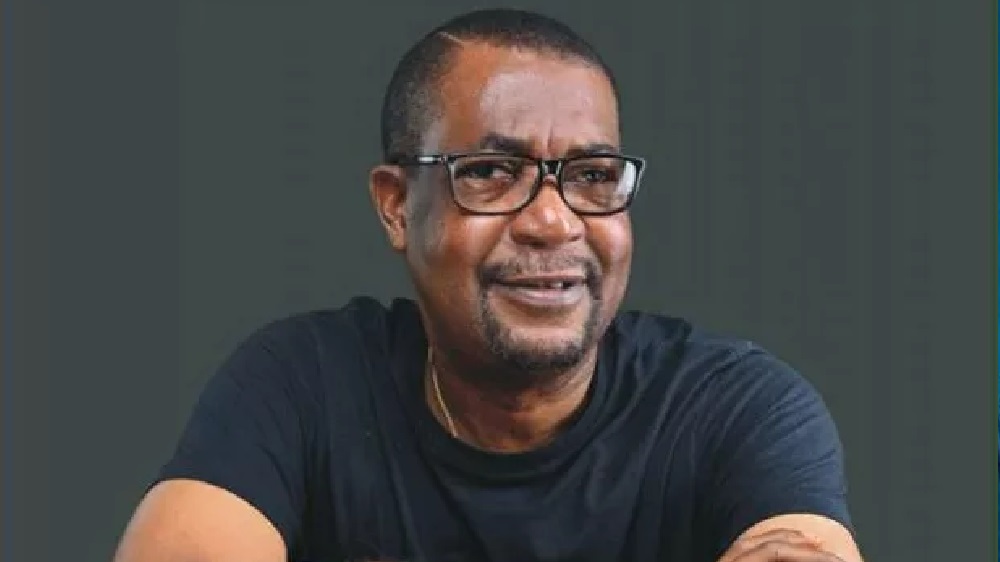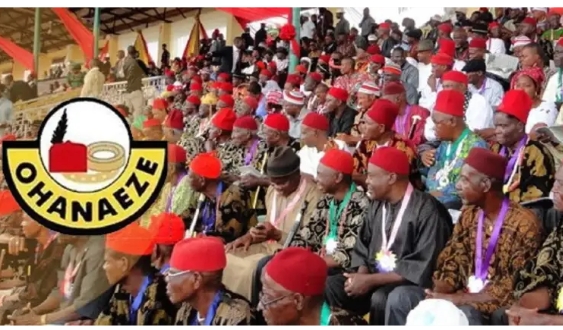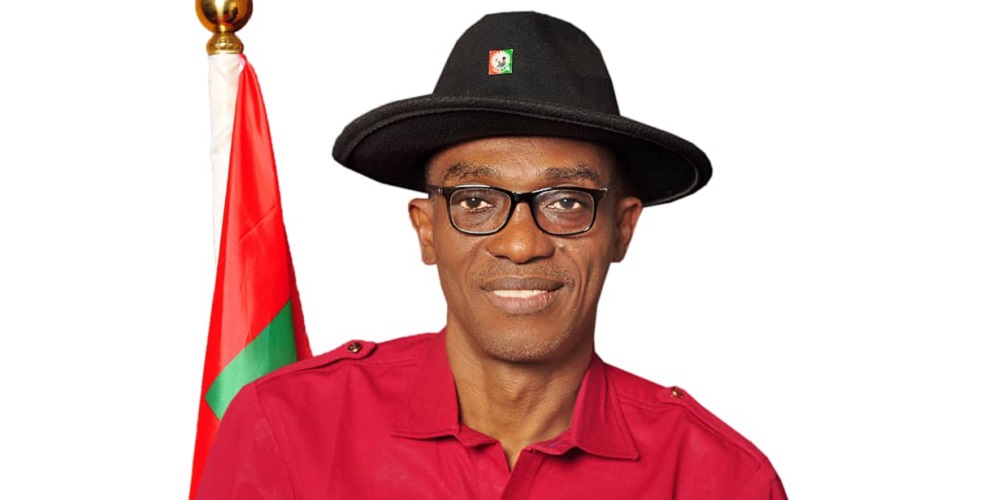News
Alleged $6b fraud: Agunloye faults EFCC on amended charge

A former Minister of Power, Dr. Olu Agunloye, yesterday challenged the amended charge the Economic and Financial Crimes Commission (EFCC) filed against him at a Federal Capital Territory (FCT) High Court in Abuja.
The former minister is standing trial for alleged infractions in the award of the $6 billion Mambila Hydropower plant in Taraba State.
Agunloye, who was minister under former President Olusegun Obasanjo’s administration, is charged with seven counts bordering on forgery and disobedience to presidential order before Justice Jude Onwuegbuzie.
In the suit, the EFCC alleged that Agunloye, on May 22, 2003, awarded a contract, titled: “Construction of 3,960 megawatt (MW) Mambilla Hydroelectric Power Station” on Build and Operate basis.
The anti-graft body also alleged that the minister contracted the project to Sunrise Power and Transmission Company Limited without any budgetary provision, approval and cash backing.
The EFCC also alleged, among others, that it traced some suspicious payments made by Sunrise Power and Transmission Company Limited to the former minister’s accounts.
But the defendant pleaded not guilty to the charge.
At the resumed hearing of the matter, the prosecution counsel, Abba Muhammad (SAN), informed the court that the commission filed an amended charge before the court and provided additional six proof of evidence.
The lawyer prayed the court to allow the defendant take his plea to the amended charge.
Agunloye, through his counsel, Adeola Adedipe (SAN), told the court that the case was adjourned for the defence to cross-examine the second prosecution witness (PW2), Adewale Agunbiade.
The former minister said the defence came prepared for the cross-examination of the PW2 and not for an amended charge.
He urged the prosecution to allow its witness to be cross-examined first before talking about an amendment to the charge before the court.
Adedipe said the prosecution could not unilaterally amend the charge before the court.
The lawyer averred that for the prosecution to amend the charge against the defendant, it ought to apply formally to the court for leave to do so.
He cited the provisions of Section 218(2) of the Administration of Criminal Justice Act (ACJA).
Muhammed said the prosecution has the power to amend the charge at any stage of trial before judgment, citing Section 216(1) and (2) to back his submission.
After listening to their submissions, Justice Onwuegbuzie directed the prosecution to formally apply for the amendment to the charge to enable the defence to respond to same.
He announced that the court would hear the application at the next adjourned date and adjourned the case till November 11.
News
Royal matter: Appeal Court Orders Fresh Hearing into Kano Emirate Tussle

The Court of Appeal in Abuja has ordered a fresh hearing in the legal battle over the disputed Kano Emirate involving Alhaji Nasir Ado Bayero.
The Appellate Court, in a judgment delivered on Friday, held that Bayero was denied fair hearing due to the shoddy manner in which a Kano High Court conducted proceedings against him.
Justice Mohammed Mustapha, who delivered the lead judgement, stated that the Kano High Court was unfair to Bayero by conducting proceedings without serving him a hearing notice to enable him to present his case.
Justice Mustapha held that all courts of law are bound to ensure justice for all parties by giving them equal opportunities, adding that the conduct of the proceedings against Bayero amounted to a travesty of justice.
Specifically, the Appellate Court held that Bayero ought to have been served with a hearing notice to allow him to present his grievances before judgment was delivered against him in what it described as a shoddy arrangement.
The Court of Appeal, therefore, ordered that the case be remitted to the Chief Judge of the Kano State High Court to be reassigned to another judge for expeditious determination.
Justice Mustapha did not award costs against the respondents in the appeal filed by Ahaji Ado Bayero.
Details later.
News
Just in: Ohanaeze Ndigbo Elects Factional President

By Kayode Sanni-Arewa
The Apex Igbo socio-cultural group, Ohanaeze N’digbo Worldwide has elected Dim Uche Nnamdi Okwukwu as its new factional President General.
The election, which took place at a convention in Port Harcourt on Thursday night, saw Okwukwu, a legal practitioner and former Secretary General of the group, chosen unopposed.
Okwukwu, from Elele in Rivers State, expressed his gratitude to the delegates and outlined his commitment to addressing the issues facing the Igbo people.
He stated that uniting the fractured Igbo community would be his priority.
His plans include engaging with the government and key stakeholders to seek the release of Nnamdi Kanu and other political prisoners, as well as pushing for economic and infrastructural development in Igbo areas.
Additionally, he intends to address security concerns, including kidnapping and other forms of violence, and work toward restructuring efforts that involve all ethnic groups.
More to come…
News
BREAKING: Aguocha Obi Declares Julius Abure Labour Party National Chairman

By Kayode Sanni-Arewa
The recent defection of lawmakers from the Labour Party to the All Progressives Congress (APC)he member representing Ikwuano/Umuahia North/ Umuahia South Federal Constituency of Abia State in the House of Representatives, Hon. Obi Aguocha has declared that as it stands Julius Abure is the National Chairman of the Labour Party (LP
Obi, an ally to Governor Alex Otti of Abia State, stated this while speaking on the recent defection of lawmakers from the Labour Party to the All Progressives Congress (APC).
According to the lawmaker, there is no leadership crisis rocking the Labour Party that warrants the defection of the party’s lawmakers.
In an interview with the New Telegraph, Aguocha noted that there is no political party that doesn’t have crisis but the leadership has remained steadfast in finding solutions.
Speaking on the defection, he said: “We have a governor but some people are only fixated on the five decampees.
“They’re my colleagues, and I would not say ill of my colleagues because it was a personal decision they took.
“Some of them have explained their actions in the public domain, and part of what they said was that there is a perceived division in the Labour Party.
There’s no political party, especially the top three in Nigeria, that doesn’t have any issues. APC has their problems. PDP has their problems. The Labour Party, of course, has its problems.
“But the most important thing is that the leadership of Labour Party has remained steadfast in finding solutions to the problems that we have in the Labour Party.
“Yes, our matter has gone through the High Court and is on appeal. I would believe that by the time the court decides as to the direction of the party, then all of us will now know the direction to move.
“But by way of the determination of the court, Julius Abure by determination of the court, whether right or wrong, is the chairman of the party. So, there’s no division in the Labour Party.”
2027 election
Obi Aguocha pointed out that most of these lawmakers who defected come from states that do not have a Labour Party government, so, it’s also an issue of their self-survival.
“They probably maybe under pressure that the election for 2027 is going to be very difficult for them without a helping hand from the state government,” he said.
-

 Politics21 hours ago
Politics21 hours agoMASSIVE WASTE! Rivers LG chairman appoints 130 SAs
-

 News20 hours ago
News20 hours agoBudget Defense: Reps Decry Poor Funding for Environment Ministry
-

 News20 hours ago
News20 hours agoVIDEO; Nigeria’s foreign relations: So far, Tinubu has showcased good salesmanship-Dr Nwambu
-

 Metro11 hours ago
Metro11 hours agoInsecurity: security operatives waste notorious bandit leader
-

 News10 hours ago
News10 hours agoCourt freezes Nduka Obaigbena’s assets in commercial banks
-

 News21 hours ago
News21 hours agoJust in: Sack newly appointed Super Eagles coach now, NANS tell NFF
-

 News9 hours ago
News9 hours agoNigeria begins implementation of agreements with China – Minister
-

 News9 hours ago
News9 hours agoAfenifere demands concrete action from S’West governors on banditry








